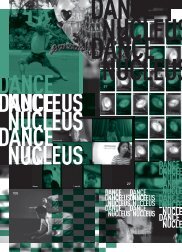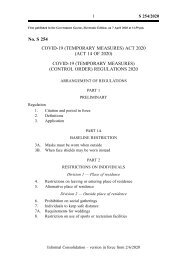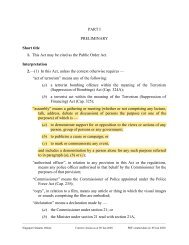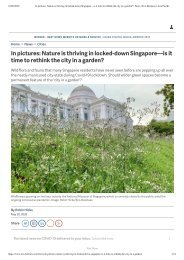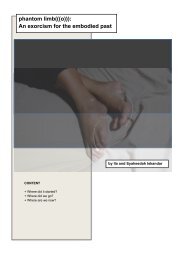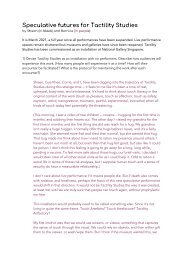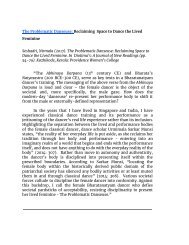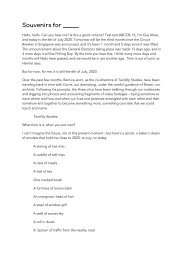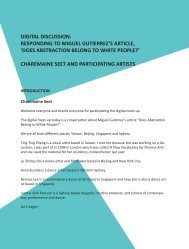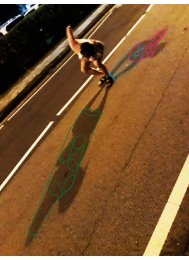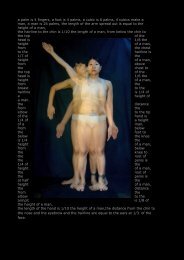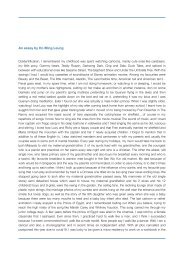Hermansyah Brotherhood
- No tags were found...
You also want an ePaper? Increase the reach of your titles
YUMPU automatically turns print PDFs into web optimized ePapers that Google loves.
AL ALBAB Volume 7 Number 1 June 2018<br />
Brunei friars of Belait, Bisaya, Brunei, Dusun, Kedayan, Murut and Tutong,<br />
regardless of their religion and belief (<strong>Hermansyah</strong>, 2015: 2 ). Based on such<br />
circumstances, especially in East Kalimantan, Maunati (2006: 85) asserted<br />
that the boundaries between Dayak and Malay are not very strict, and the<br />
limitation of one’s Dayak identity is always changing. Thus according Maunati<br />
the use of ethnic terms in the context of religious differences is misleading.<br />
Modernity that brings nature to rational thinking has transformed people who<br />
believe in supernatural and mythology to something logical and empirical.<br />
The process of modernization is channeled through education and cultural<br />
literacy. Education and cultural literacy has brought a new cultural element<br />
among people of Kalimantan. The stories in the textbooks come mostly from<br />
other cultures. While the oral tradition speakers who remind their past are<br />
diminishing. In everyday life the use of modern tools and technology among<br />
the Malays is increasing. This has improved efficiency and reduced their<br />
dependence on nature. By itself, some of the collective memory that bridges<br />
them in touch with nature with its various beliefs is also eroded.<br />
Another factor that also greatly affects the collective memory of the Malays is<br />
politics. Strong ethnic politics has influenced the Malay ways of thinking and<br />
acting. When the election of competing regional head candidates is Malay and<br />
their political opponents are Dayaks then identity politics is strengthened. The<br />
strengthening of ethnic identity --in this case Malay and Dayak-- is needed<br />
to attract the sympathy of each group. The rivalry of political elites involving<br />
ethnic identity has had an effect on the lack of harmonious political relations<br />
among some Dayak elites and the Malay in politics (Isman 2016: 362). In this<br />
context the collective memory that reminds them of their brotherhood may<br />
be forgotten, as opposed to the political interests of the elites. The collective<br />
memory here is seen as the subjective experience of a social group that can<br />
basically support power relations (Confino, 1997: 1393). This situation will get<br />
worse if there is dominance control of government bureaucracy --ignoring the<br />
competence and professionalism-- when members of one ethnic group wins<br />
the election of the regional head of government. This political competition<br />
has also affected their collective memory. Because of the competition, some<br />
people find it unnecessary to maintain a collective memory that reminds the<br />
similarity of their origin. Differences of interest can make memory a captive of<br />
reductionism and political functionalism (Confino, 1997: 1395).<br />
Religion is also a factor that greatly affects the collective memory of the<br />
Malays. The presence of Islam has brought many changes to West Kalimantan<br />
Malay people who choose to embrace this religion, including in terms of<br />
culture. Although the Malays do not entirely abandon local traditions, the<br />
[ 70 ]




